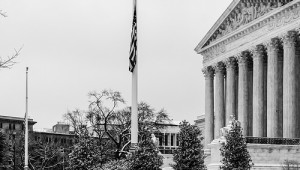What A New Supreme Court Means for Unions, Education Funding, and the Future of California

Photo by tedeytan
With the death of Antonin Scalia on February 13th, public sector unions in America were given a reprieve from what was sure to be a bad ruling in theFriedrichs v CTA case before the Supreme Court.
As Michael Hiltzik explained in the Los Angeles Times:
The target of the Friedrichs lawsuit, and several others just like it, is the “agency” or “fair share” fee. Under the law and according to a 1977 Supreme Court decision known as the Abood case, unionized public employees can be assessed nonmember fees to cover solely the cost of negotiations and contract enforcement, without being compelled to join the union and support its political activities by paying full union dues. That’s the arrangement in California.
For decades, union opponents have been trying to get Abood overruled. Friedrichs, like the other cases, paints the challenges as blows on behalf of free speech; the argument is that the public employees compelled to pay agency fees are being forced to support political positions taken by their unions with which they disagree, and therefore their freedom of speech is being infringed. In truth, however, these lawsuits aren’t about free speech or improving education for children. They’re about silencing the political voice of teacher unions by cutting off their revenues.
I have written about the significance of the Friedrichs case before here and here, but the bottom line is that a bad ruling would have been a gut punch not just for public sector unions but for the American union movement as a whole and the many aligned progressive and non-profit community organizations that are funded by labor. It would have tilted the scales even further in favor of corporations and conservative billionaires in the political realm and made many already challenging progressive goals nearly impossible to achieve.
The end result of the deadlock on the Supreme Court that Scalia’s demise creates is that unions dodge the Friedrichs bullet in the short term and most likely the long term IF a Democrat wins the White House in November and appoints a liberal to the Court.
Here in California, it is not just the ability of unions to play in politics that will be at stake but the What A New Supreme Court Means for Unions, Education Funding, and the Future of California:
